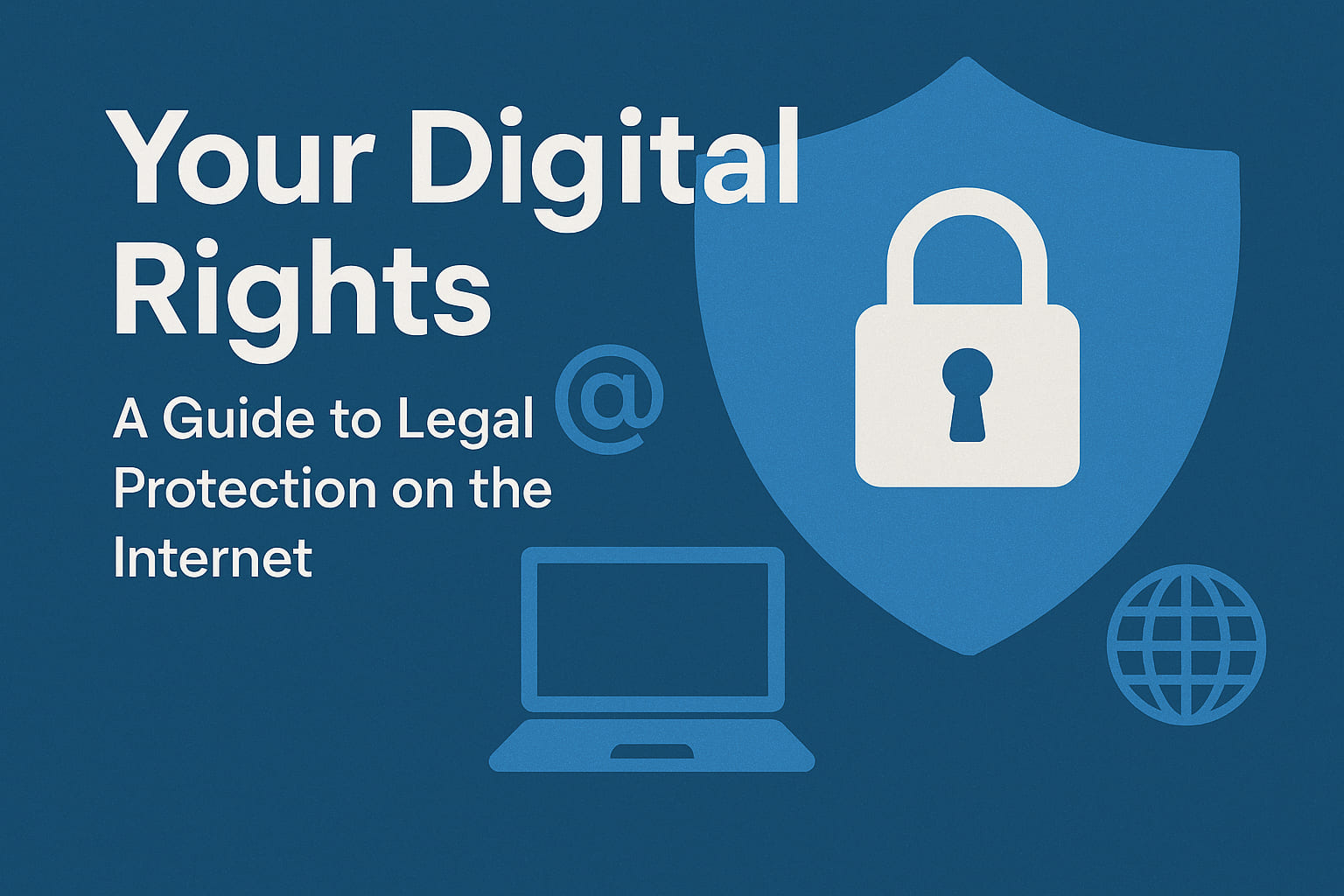It's a common misconception that the internet is a lawless place, a digital "Wild West" where anything goes. In reality, a robust framework of laws and regulations exists to protect your fundamental digital rights, privacy, and security. Understanding how these legal tools work is the first and most crucial step in defending yourself online.
This article breaks down the key areas where the law protects you, providing clear, actionable insights for every internet user.
1. Your Right to Data Privacy: Understanding GDPR
For anyone in Europe, the General Data Protection Regulation (GDPR) is the most powerful tool for data privacy. It is a landmark piece of legislation that gives you unprecedented control over your personal data.
What it allows you to do:
- Right to Information: Companies must clearly explain why they are collecting your data and how they will use it. No more vague legal jargon.
- Right of Access and Rectification: You can ask any company what data they hold on you and demand that it be corrected if it is inaccurate.
- The "Right to be Forgotten": You can request that a company delete your data, especially if you no longer wish for them to have it (e.g., your purchase history after closing an account).
- Right to Portability: You can request your data in a format that makes it easy to transfer to another service or company.
Key Takeaway: The GDPR empowers you to hold companies accountable for their data practices, shifting the power back to you, the individual.
2. Legal Recourse for Online Harassment and Hate Speech
Cyberbullying and the spread of hateful content are not just online problems—they are serious crimes with severe legal consequences. Laws against online harassment, defamation, and incitement to hatred provide a legal avenue for victims.
What it allows you to do:
- File a Police Report: If you are a victim of harassment, threats, or defamation, you can file a report with law enforcement. Digital evidence such as messages and screenshots is crucial for your case.
- Pursue a Civil Case: You can seek legal damages from individuals who harm your reputation or cause you distress through online actions.
Key Takeaway: The law offers a clear path to justice for victims of cybercrime, proving that the internet is not an anonymous shield for abusers.
3. Protecting Your Creations: Copyright and Intellectual Property
If you are a content creator—a blogger, photographer, or artist—the law automatically protects your work from theft and unauthorized use.
What it allows you to do:
- Copyright Protection: In many jurisdictions, your creations (texts, photos, videos) are automatically protected by copyright law from the moment they are created. No one has the right to use or reproduce them without your permission.
- Combatting Piracy: Laws against intellectual property theft and digital piracy allow you to sue those who illegally use or distribute your work.
Key Takeaway: Your creative work is your property, and online copyright law gives you the power to defend it against theft.
4. Consumer Rights and Protection Against Online Fraud
Online fraud, phishing scams, and credit card theft are all criminal offenses. Consumer protection laws are in place to safeguard your money and online transactions.
What it allows you to do:
- Bank Reimbursement: If your credit or debit card is used fraudulently, the law protects you. By reporting the fraud promptly, your bank is legally required to reimburse you, unless gross negligence on your part is proven.
- File a Legal Complaint: Victims of online scams can file a police report, which allows authorities to investigate and prosecute the culprits.
Key Takeaway: The law protects your money and online transactions, providing a safety net and legal recourse if you are a victim of a cyber-attack or scam.
In conclusion, the internet is not a lawless frontier. Knowing your digital rights is a form of empowerment. By understanding and using these legal protections, you can navigate the web with confidence, ensuring your privacy, security, and personal integrity are always defended.
